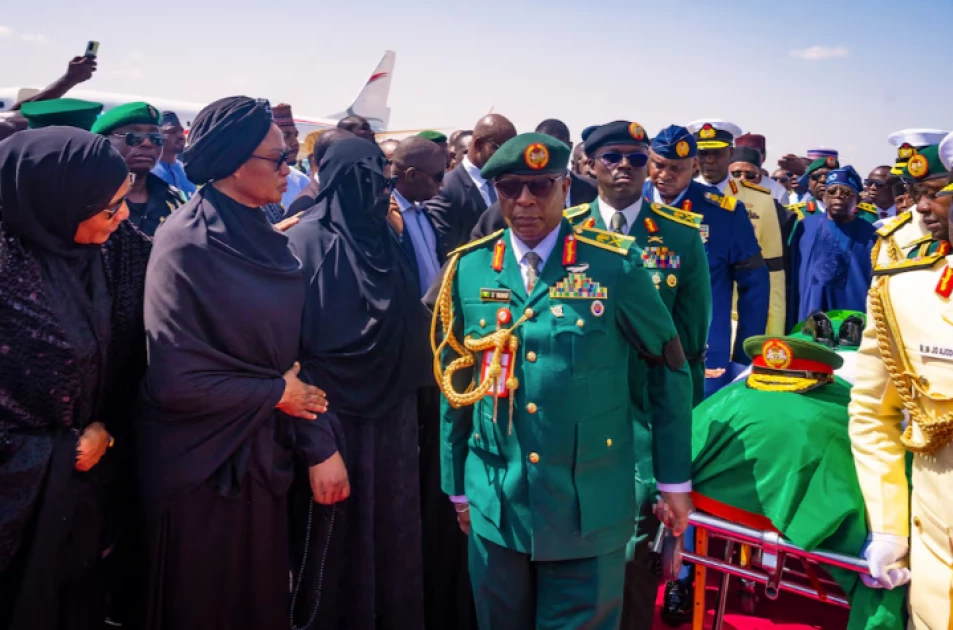Nigeria has laid to rest its former president in an emotional ceremony held in his home state of Katsina. The 82-year-old former leader, who governed the country from 2015 to 2023, passed away in a London hospital following a brief illness. His burial in Daura, a historic town in northern Nigeria, drew thousands of mourners, many of whom climbed trees and jostled for space to bid him a final farewell.
The late leader’s coffin, wrapped in the green and white of the Nigerian flag, was flown into Katsina where it was received with full military honors. A 21-gun salute echoed through the air, accompanied by a solemn parade. Present at the airport were the current head of state, senior government officials, military personnel, and religious leaders, all dressed in traditional attire to pay their last respects.
Supporters in Daura lined the streets chanting “Sai Baba,” a nickname used affectionately for the late president. Emotions ran high as his casket made its way through the town to his private residence, where he was buried in his backyard. The burial was consistent with Islamic customs, which call for simplicity and prompt interment.
The federal government declared seven days of national mourning to honor the former president’s memory, including a public holiday on the day of his burial. Flags were flown at half-mast across the country, and special prayer sessions were held in various mosques and churches.
The former president, who initially took power as a military ruler in the 1980s before returning through democratic elections in 2015, remained a significant figure in Nigerian politics. His victory in 2015 marked the first time an opposition candidate unseated an incumbent in Nigeria, a moment that was seen as a major milestone in the country’s democratic journey.
During his eight years in office, Nigeria grappled with a number of challenges. His tenure saw the country experience two economic recessions, high inflation, and frequent shortages of foreign currency. Oil production — the backbone of the economy — slumped amid global volatility, while insecurity escalated across various regions, from banditry in the northwest to separatist agitations in the southeast and persistent violence in the northeast.
Despite these hardships, he retained strong popularity in the north, where many admired his disciplined lifestyle and emphasis on anti-corruption. His personal image of integrity, frugality, and nationalistic rhetoric endeared him to many in a region where economic hardship and political instability have long prevailed.
However, his administration was not without controversy. Critics often pointed to what they described as a sluggish and selective anti-corruption drive, with few high-profile convictions. Others criticized his perceived aloofness, especially during national crises, and his repeated absences from the country for medical reasons.
Nonetheless, the legacy of the late president is a complex tapestry of military rule, democratic leadership, and deep regional loyalties. His passing marks the end of an era in Nigeria’s modern political history, and his burial in his hometown symbolizes his lasting connection to the people who supported him most fervently.

